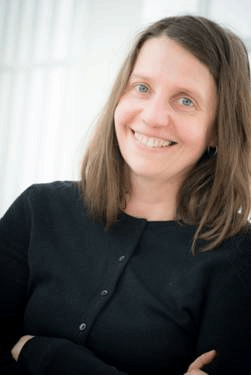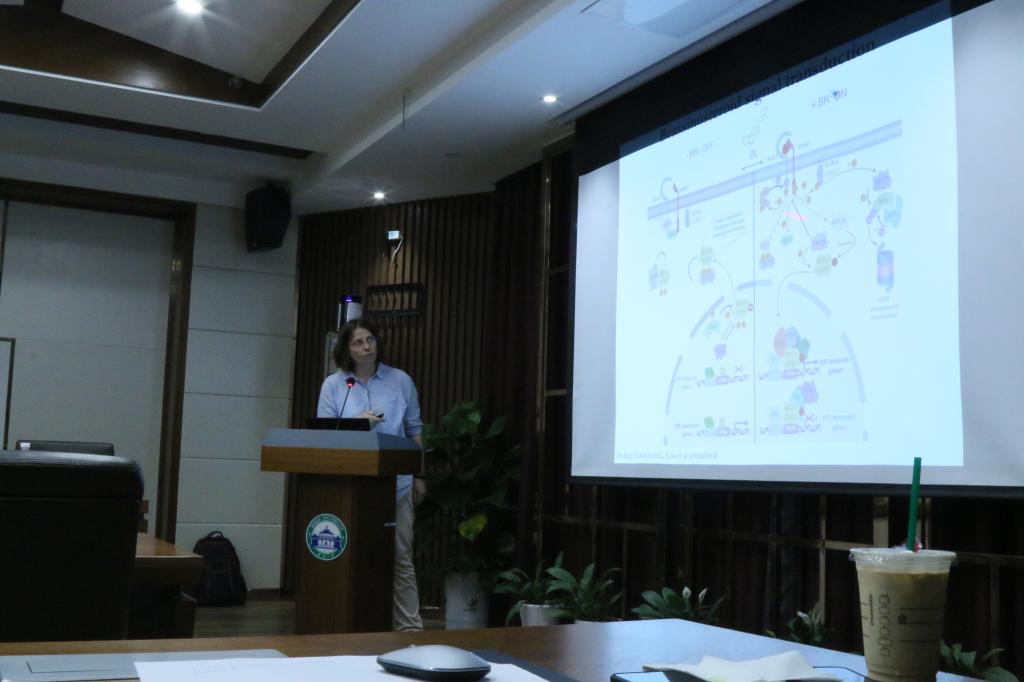主讲人:Eugenia Russinova 教授
时 间:2019年6月20日(星期四)下午14:30
地 点:生命科学学院一楼中厅
题 目:Integration and specificity in plant signal transduction
个人简介:
Eugenia Russinova教授于1996年在英国莱斯特的德蒙福特大学获得博士学位。随后,她加入荷兰瓦格宁根大学Sacco De Vries实验室从事博士后研究,专注于SERKs植物受体样激酶的功能、激活机制和亚细胞区室化。Russinova教授于2006年在比利时根特大学佛兰芒生物技术研究所(VIB-UGent)植物系统生物学中心开展独立研究工作,于2013年晋升为教授。2018年成为欧洲分子生物学组织(EMBO)会员,曾任Current Opinion in Plant Biology、Plant and Cell Physiology、Journal of Cell Science等国际学术期刊编委,现担任植物科学领域顶级期刊Plant Cell审稿编辑。
Russinova教授致力于结合化学遗传学、分子生物学和细胞生物学工具解析BR信号通路的调控机制及BR通路与其他信号通路的交互作用,曾在Nature、Nature Cell Biology、Nature Chemical Biology、Nature Communications以及Plant Cell等国际知名期刊发表论文70余篇。
Eugenia Russinovaobtained her PhD in 1996 at De Montfort University, Leicester, UK. Subsequently, she performed postdoctoral studies at Wageningen University, Wageningen, Netherlands, in the lab of Sacco De Vries where she investigated the function, mechanisms of activation and thesubcellularcompartmentalizationof plant receptor-like kinases named SERKs. She started her own research group in 2006 at Center for Plant System Biology, VIB-UGent, Belgium, and was promoted to professor in 2013. Professor Russinova was elected as a member of EMBO in 2018. She was a member of editorial advisory board of several international academic journals such as Current Opinion in Plant Biology,Plant and Cell Physiology and Journal of Cell Science. She is alsoappointedas a reviewing editor of the Plant Cell, which is among the top journals in the field of Plant Science.
Professor Russinova's group combines chemical genetics, molecular biology and cytology tools to investigate the mechanisms of BR signaling regulation and the interaction of BR pathways with other signaling pathways in plants. Her research group has more than 70 publications in internationally renowned journals including Nature, Nature Cell Biology, Nature Chemical Biology,Nature Communications and Plant Cell.

相关新闻:
(通讯员 郭勃予)6月20日,比利时科学家Eugenia Russinova教授做客长江学术论坛第83讲,带来题为“Integration and specificity in plant signal transduction”的学术报告。
Russinova教授在报告中介绍了她的团队在植物信号转导方面取得的进展。植物需要稳定且有适应能力的生化网络来实现对信号的感知和整合,油菜素甾醇(Brassinosteriod,BR)信号通路与控制植物叶表皮气孔发育的信号通路相关,一些蛋白同时参与这两条通路,它们通过支架分子形成复合物以到达特定的细胞区室,从而特异地行使功能。
Russinova教授致力于结合化学遗传学、分子生物学和细胞生物学工具解析BR信号通路的调控机制及BR通路与其他信号通路的交互作用,研究成果曾发表于Nature、Nature Cell Biology、Nature Chemical Biology、Nature Communications以及Plant Cell等国际知名期刊。




 武大主页
武大主页 武大邮箱
武大邮箱 信息门户
信息门户 English
English